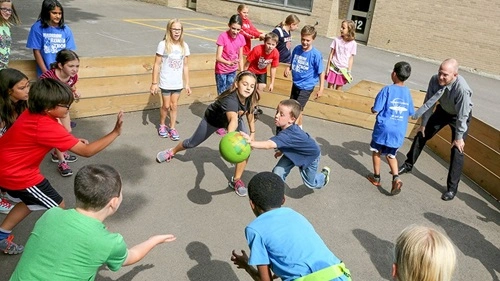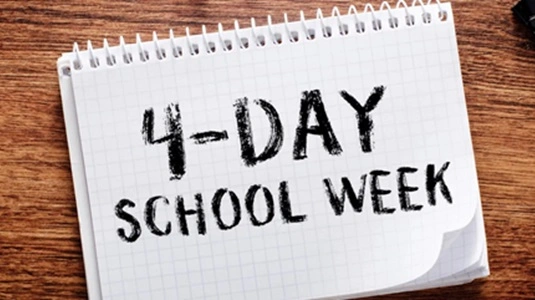In recent years, there has been a growing debate about whether middle school students should have recess. While elementary school students benefit from scheduled breaks, many educators and psychologists argue that middle schoolers should not have recess. Instead, they should focus on structured physical education (PE) programs, extracurricular activities, and better academic engagement.
This article explores the reasons why recess might not be the best fit for middle school students and presents updated perspectives from experts, educators, and parents.
1. Increased Academic Pressure and Curriculum Demands

Middle school serves as a bridge between elementary school and high school, introducing students to a more challenging curriculum. Subjects such as algebra, science, and advanced writing require deeper critical thinking and longer class periods for effective learning.
A 2023 report from the National Center for Education Statistics (NCES) revealed that middle school students face higher academic expectations than ever before. Standardized testing, STEM education, and foreign language programs require additional instruction time, making it difficult to justify an extended recess break.
Many educators argue that shortening instructional periods for recess may result in reduced lesson efficiency, rushed coursework, and increased homework loads, ultimately placing more stress on students.
2. Recess May Lead to Behavioral Issues
Unlike younger children, middle schoolers experience significant emotional and social changes due to adolescence. Research from the American Psychological Association (APA) shows that students in grades 6-8 undergo hormonal changes that can lead to mood swings, social conflicts, and even bullying.
In elementary school, supervised play helps students develop basic social skills, but middle schoolers require more structured social interaction. An unstructured recess period could contribute to:
- Increased bullying and peer pressure
- Formation of exclusive social cliques
- Disruptions in emotional well-being
A study conducted in 2024 by the University of Michigan found that middle school students in schools with unstructured recess had a 17% higher rate of disciplinary issues than those with structured break alternatives, such as guided mindfulness sessions or team-building exercises.
3. Alternative Breaks Are More Beneficial
Instead of traditional recess, many schools have adopted alternative ways to give students a mental and physical break without causing disruptions. These alternatives include:
A. Brain Breaks & Movement Breaks
Short, five-minute “brain breaks” between classes have been shown to improve focus and reduce stress. These breaks include stretching exercises, mindfulness activities, and quick classroom discussions.
B. Structured Physical Education (PE) Classes
Unlike recess, which is often unregulated, PE classes provide structured physical activity, ensuring that students engage in beneficial exercises. The Centers for Disease Control and Prevention (CDC) recommends at least 60 minutes of physical activity per day for adolescents, which can be effectively achieved through PE rather than recess.
C. Club and Extracurricular Activities
Many schools now encourage students to participate in clubs, leadership programs, and intramural sports instead of spending time in recess. These activities promote skill development, teamwork, and personal growth in a structured environment.
4. Safety and Liability Concerns
Many school districts across the U.S. have raised concerns about safety during unstructured recess for middle schoolers. Unlike elementary students, middle schoolers engage in more aggressive physical activities, increasing the risk of injuries.
A 2024 report from the National Association of School Resource Officers (NASRO) found that schools with recess for grades 6-8 reported higher instances of:
- Playground injuries
- Fights and altercations
- Vandalism and property damage
Due to these risks, many schools have opted to replace recess with safer, supervised activities that still allow students to unwind without posing legal or physical threats.
5. Preparation for High School and Beyond
Another argument against recess for middle schoolers is the need to prepare them for high school schedules. High school students typically do not have recess and instead have structured break times between classes. By eliminating recess in middle school, students can gradually adapt to high school routines, fostering independence and time management skills.
Additionally, middle school is a critical period for career exploration and early academic planning. Many educators advocate for using break periods for college readiness programs, career counseling, and academic mentorship.
FAQs
Q1: Don’t middle schoolers need a break during the day?
Yes, but structured alternatives like brain breaks, short outdoor activities, and social clubs can provide similar benefits without the downsides of recess.
Q2: Won’t removing recess make students more stressed?
Not necessarily. A 2023 study by the Child Mind Institute found that structured mental health breaks, such as guided meditation or journaling sessions, were more effective in reducing stress than unstructured recess.
Q3: Isn’t physical activity important for adolescents?
Absolutely! However, PE classes, after-school sports, and movement-based classroom activities provide better exercise opportunities than unsupervised recess.
Q4: What if students want recess as a social break?
Middle school students have multiple opportunities to socialize, including lunch periods, group projects, and extracurricular activities. Encouraging social interaction in a structured environment minimizes issues like bullying and exclusion.
Conclusion
While recess remains essential for younger children, middle school students may benefit more from structured alternatives. With increasing academic demands, behavioral concerns, and safety risks, many educators believe that middle schoolers should transition to more effective break strategies.
By focusing on structured physical education, brain breaks, and extracurricular engagement, schools can create an environment that supports both academic success and personal growth. As education continues to evolve, it’s crucial to prioritize strategies that prepare students for high school and beyond while ensuring their overall well-being.
Would removing recess from middle school make a difference in your community? Let us know your thoughts!



